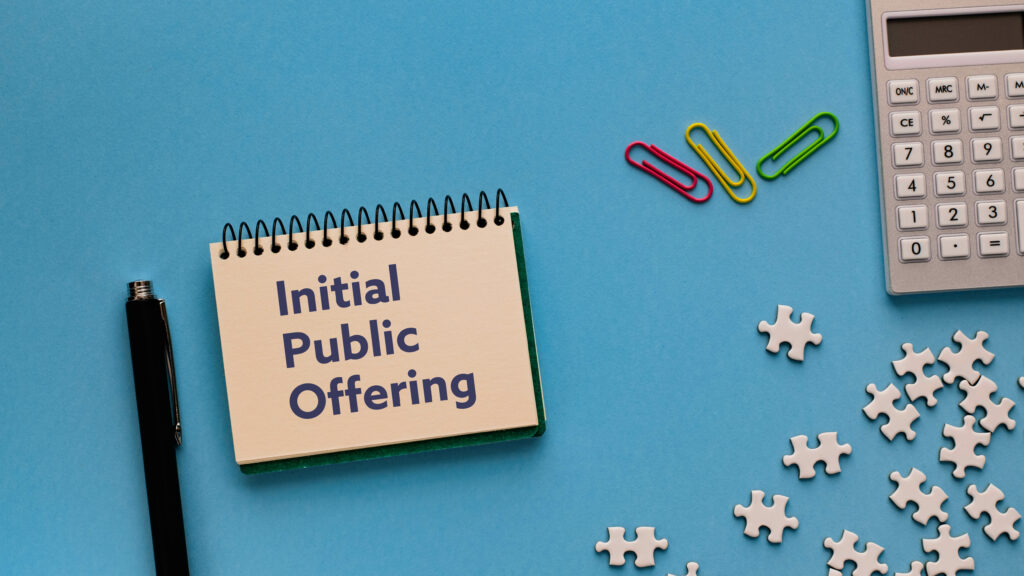Client Question: Initial Public Offering
August 30, 2023
A client recently reached out asking whether or not I thought she should invest in shares of an Initial Public Offering (“IPO”). While these events are talked about in the news and grab the headlines, there are many facets of them that are not widely explained. Let’s take a closer look at IPOs – what they are, how they work, why they happen, and how “everyday” investors can participate.

What is an IPO?
The name does a pretty good job at explaining what it is – it is the first time (“initial”) shares of a private company are made available for purchase in the public/exchange-traded markets (“public offering”). While it may be hard to remember, all companies that are now household names and trade millions of shares a day started out as private companies – up until the day of their IPO.
How does an IPO work?
An IPO is a very involved process – one we won’t cover in step by step detail herein. At a very high-level, company management engages advisors to help them with the process. That process includes extensive documentation of the company and its financials (past/current/prospective). The company and its shares are then marketed and promoted, at which time possible buyers are able to do their own valuation and due diligence procedures. The lead underwriter of the offering assembles a group of investment banks and broker dealers (know as the syndicate) that is responsible for then selling the shares to institutional and individual investors. When ready to list, the company will announce a “placing price” for the shares -which will be the opening price on IPO day and is determined by the demand indications received by the underwriters.
Why would a company choose to go public?
The answer to this depends heavily on the company and its specific fact pattern. There are many benefits, such as access to capital, ability for owners/early investors to monetize their investment, and taking advantage of certain market dynamics (IPOs tend to do best when there is a strong demand for equities/growth assets). There are of course reasons to not go public as well – including share price volatility, added regulations, changing incentives, cost of executing the IPO, etc. As a result, it is very much a company-specific decision and will also become more/less attractive as market conditions change.
How do “everyday” investors participate?
As noted above, the vast majority of shares on offer in an IPO are allocated by the underwriters to major financial institutions – investment banks and broker dealers. Those organizations then allocate the shares out to their clients (which can be other institutions or certain retail clients that have enough wealth/standing/connections, etc). This first group tends to get the most benefit from an IPO – the shares are set to start trading at a certain price (as agreed to by the company) and within seconds of listing, the price tends to go up. That benefit goes to the clients that received the initial allocation – which is very rarely the every day retail investor like you and me. So where does that leave the rest of us?
“Everyday” investors can still buy shares in a company once it goes public – just like you can buy shares in any company that is currently public. Typically, you will just be doing so after the initial “pop.” Beyond the typical research and due diligence that is required with the purchase of any investment (individual stock, bond, ETF, or mutual fund), with an IPO you should also be mindful of:
- Limited information – you will have access to the registration statement which will contain some financial information. You should also be able to find out information on the underwriters, company management, lock-up period (how long until current owners/investors can sell their shares after IPO), risks, competitive landscape, and number of shares to be issued. It’s likely this information will not be very prevalent, given the fact that up until listing, the company was private and not obligated to expose such details
- Manage emotions and euphoria – IPOs are without a doubt very exciting and rightfully so. Companies can go years, if not decades, before listing and when they do, it is a major milestone. Keep in mind that despite the excitement and press surrounding an IPO, it is still an investment like any other investment – your return is directly anchored to the price you pay. Be mindful of the hype – and be sure the price you’re paying is worthy of an allocation of your wealth
IPOs are an essential and exciting part of our market system in the US. It’s important to understand the mechanics and realize that just because it’s the initial offering doesn’t mean it’s your last chance to own the shares. Do your homework, consider all the information you can access, and proceed with the same level of diligence and care you would with any other investment.
Leave a note